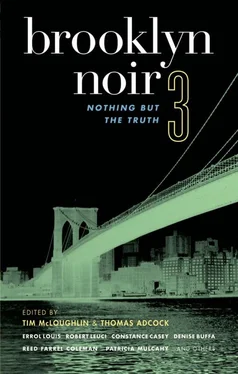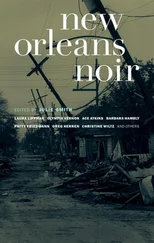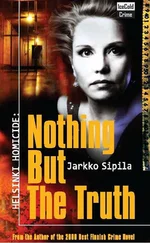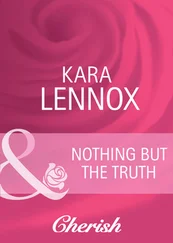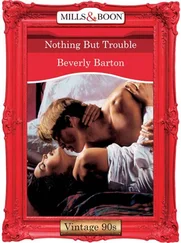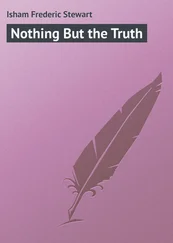The next time, when I spoke to my father I said, “You were right. Were you ever. Jesus!”
He smiled.
A recollection. Voices and faces. Tales like threads over and around a piece of time. So mindful I am of my experiences in Brooklyn that nothing goes away. Now, I can see myself as I was then: None of it was real, like I was in a movie, some dodo up on the screen, some character in my skin making his way through a world he didn’t understand.
I’m young and healthy. The drinking age in New York City was eighteen, but they wouldn’t serve me without ID until I was thirty. Baby Face, they called me. The cops and the street people, they all called me Baby Face.
Today I look in the mirror. “Baby Face,” I say to the reflection. “Yeah, right.”
I see myself sitting in homeroom at William H. Maxwell Vocational High School in East New York one morning. A bright fall day in Brooklyn and the teacher walks into the room. Passing as a high school student, I’m there to buy dope. The teacher smiles nervously at me, squints, turns around, then turns back and looks at me again.
The teacher’s name was Veltri, I called him “Red” when I was the pitcher and he was the great glove and strong hitting shortstop of our own John Adams High School baseball team in Ozone Park. Later, in the boy’s room, Red asked me, “How are you doing?” I said fine, that I was there to do something that had to be done. I told him I was a cop. He said, “Yeah, I figured.”
After a week at Red’s school, my job was done.
I was now standing in the principal’s office. I remember how that dip-shit came at me, how angry he’d been that I’d bought drugs from fourteen of his students.
He was horrified. He unbuttoned his coat and loosened his tie and shouted that I’d crossed the inviolable threshold of his school.
A great sadness came crashing down on me. I thought I had accomplished something good, something worthwhile, something that needed to be done. It was the first time I realized that although the world’s good people said they wanted evil exposed, in fact that was often the last thing they wanted.
The image I had of myself as a hero, as someone who was willing to do the work of an undercover cop — all of that was so much crap. This dip-shit principal didn’t want the crap; he wanted me to go away. Rocking back and forth, getting reamed in that man’s office, looking down at him seated behind his desk, I felt a swell of hopelessness; a claustrophobic sensation, as if I’d suffocate to death if I didn’t get out of there.
He berated me, telling me that I was taking advantage of his students — his kids , he called them. This being the same man who only a week earlier was so happy to see me, so pleased that someone would come and help figure out if there was a drug problem at his school.
Full-blown into his rant, I got this picture in my head of a fourteen-year-old kid in jeans and a sweatshirt, a knowing smirk on his face. The little piss-pot telling me he could get all the drugs I wanted, whatever I wanted, as long as I had the cash. Guns he could get me too, this little shit, this tough guy with the long hair flowing over his shoulders. A good-looking boy, the image of one of my high school buddies from a few years back. But my buddy wasn’t selling drugs, this piss-pot was.
Piss-pot’s mother was the president of the PTA, an important person. As was this man, this dip-shit of a high school principal. As were the many others to come later: judges, prosecutors, politicians, chiefs of police, some of my family, my friends, journalists, television commentators, cops — so many cops. Faces in my not-so-distant future, scores of good citizens, my unborn children — all of them asking me about similar and different cases. Why didn’t I mind my own business? I tried, trust me. I gave it my best shot. It just wasn’t possible.
Imagine what arresting strung-out junkies would do to you. Or how depressed you’d get from collaring people who couldn’t find their hands and feet. Between the crazy shit you saw both in the street and courthouses, and what you personally lost as far as moral perspective was concerned — being there, seeing it all up close and personal — well, if you had any brains at all you would see that it all boils down to a collective nervous breakdown of a person’s system.
Your eye saw it but your brain couldn’t really take it in. Like this one:
I’ve told it before — many times, several versions — but this is what actually happened.
It was late on a Friday when I walked into the Brooklyn arraignment court. It was a busy night, the place was jammed to the rafters and it turned the courtroom into a spectacle of craziness. It was a bazaar of victims and defendants, manipulators of all sorts.
I spotted Richard Smalls — “Sweet Dick,” they called him. He was standing against a wall amongst a bevy of his working girls. Dick was an informant of mine, a “benevolent” pimp with processed hair and sharkskin suits. He looked to all the world like Sugar Ray Robinson.
Sweet Dick didn’t bully or threaten his women so much as he charmed them. I guess he told them he loved them and made all sorts of ridiculous vows to protect them. Out of fear and loneliness a lot of street girls hooked up with pimps, slick guys who spared no expense or time winning and wooing them. Dick would keep at a new street girl with relentless pressure, over and over until she joined his crew. Most of these women didn’t have much going for them in the way of self-reliance. Sweet Dick’s women wore wigs and face paint and were street-pretty. They were heroin addicts, all of them.
I remember the way Dick put his hands on his hips, turned to look around the courtroom, giving the place his I-don’t-need-this-shit look. Then he turned back to me and said, “Man, you gotta help me out here. My brother got busted by some precinct cop — bunch of bullshit. The kid didn’t do nothing but ride in a car. The car was hot but he never knew it.”
I asked, “What would you like me to do?”
The five women standing behind Sweet Dick, as if on cue, gave me perplexed, piercing looks.
“You can go and talk to the D.A., have his bail lowered or something,” one of them said.
The assistant district attorney calling the arraignment calendar was — here, I’ll call him “Joe.” Joe was attorney for the state of New York, and that was unbearable to him. He longed to be in private practice and hauling down boxes of cash. Joe was an attractive guy, erudite in a Brooklyn sort of way. He knew his way around the courthouse, knew how to get things done.
Favoring navy blue pin-striped suits, off-blue shirts, and red ties, Joe had a full head of curly black hair. You’d make him as somebody who could work a lounge in Vegas.
“I have an informant here whose brother is on the docket,” I said to Joe. “Can you help me out? I’d like to get his bail lowered.”
He gave me a look, a supercilious grin, a look of both expectation and disbelief. I recall that it gave me a funny feeling, that look of his.
“Does he have any money?” Joe asked.
I went to Sweet Dick and asked him about money.
Dick inquired of his ladies, “Does anyone have any cash?”
The ladies searched their pocketbooks, by which I mean their bras, their panties. After much searching and shuffling about, they came up with about five hundred dollars in rolled-up fives, tens, and twenties.
I gave Joe what I thought was bail money — the whole rolled-up, scrounged-together hooker cash. He told me to go and get the prisoner. I just about lost it when Joe paroled the guy right there on the spot — into my custody.
“Whoa!” I said. “Wait a minute.”
“Parole’s better than low bail,” said Joe, smiling again. “Or no bail at all.”
Читать дальше
